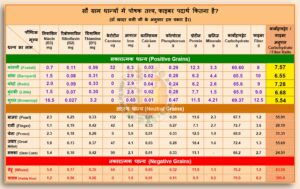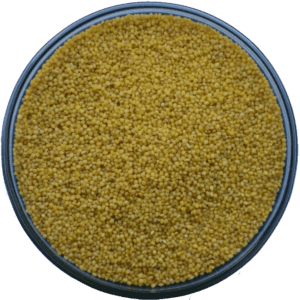Introduction:
Millets are a group of highly nutritious grains that offer a wide range of health benefits. They are gaining popularity globally due to their unique flavors and impressive nutritional profiles. In this article, we will explore the various types of millets and their importance in promoting overall health and well-being.
1. Foxtail Millet: A Nutritious Choice for All Ages
Foxtail millet stands out with its complex flavor profile, combining elements of sweetness and bitterness. This grain is not only delicious but also highly nutritious. It contains 8% fiber and an impressive 12% protein content, making it a commendable dietary choice. Foxtail millet is particularly beneficial for individuals managing diabetes, as it aids in reducing cholesterol levels. The grain’s abundant antioxidant content further enhances its nutritional value. Additionally, it provides essential nutrients such as calcium, iron, manganese, magnesium, phosphorus, and various vitamins. This makes foxtail millet a nourishing option for both children and expectant mothers. It can also alleviate pregnancy-related constipation and strengthen nerves, offering potential relief from seizures during high fever episodes.
2. Kodo Millet: A Holistic Inclusion for Optimal Health
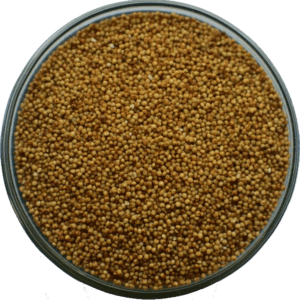
Kodo millet presents a harmonious blend of sweetness, bitterness, and acrid notes. It is renowned for its multifaceted health benefits, which include blood purification, enhanced immune resilience, and relief from ailments like anemia and diabetes. This millet also aids in alleviating constipation and promoting restful sleep. Notably, Kodo millet plays a pivotal role in supporting optimal bone marrow function, providing relief from asthma, kidney complications, and prostate-related concerns. It further demonstrates potential in mitigating challenges associated with blood cancer, intestinal cancers, thyroid issues, throat ailments, pancreatic disorders, and liver conditions. With its high fiber content, Kodo millet contributes to weight management while regulating sugar and cholesterol levels. Its consumption, especially when combined with lentils like Bengal gram or cowpea, ensures a comprehensive nutrient profile for the body.
3. Little Millet: Addressing Reproductive Health and More
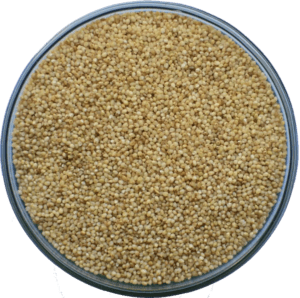
Little millet offers a sweet taste and a highly palatable experience. It proves instrumental in addressing a spectrum of reproductive issues in both males and females, including challenges related to ovaries, sperm, PCOD, and infertility. This millet functions as a medicinal intervention, providing relief from postprandial chest burning, sour belching, and abdominal tightness induced by gastric concerns. Additionally, little millet aids in managing sexually transmitted diseases, diarrhea, indigestion, and enhancing sperm count in men. It also helps address menstrual irregularities in women. With its high fiber content, little millet is beneficial for those grappling with constipation and offers relief to migraine sufferers. Furthermore, its nutritionally dense nature makes it advantageous for individuals dealing with heart issues, obesity, and joint pains. The grain’s cleansing properties extend to the lymph nodal system, contributing to the management of various cancers, including brain, throat, blood, thyroid, and pancreatic cancers.
4. Barnyard Millet: Promoting Vital Health Functions
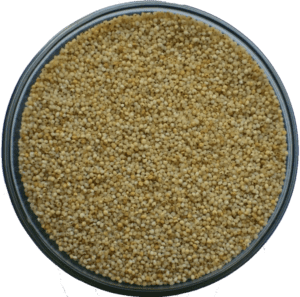
Barnyard millet is known for its sweet taste and its positive effects on the thyroid, pancreas, and overall health. With its fiber-rich composition, it aids in managing diabetes and constipation. The millet effectively cleanses the liver, kidney, gallbladder, endocrinal glands, reducing the risk of jaundice and strengthening the liver. Barnyard millet is highly valued in North India during religious fasting due to its strength-giving and easily digestible qualities. Pregnant and neonatal women in Uttarakhand and Nepal are often given food made from this millet to combat anemia and increase breast milk production. The grain provides body temperature regulation and improves the body’s resistance capacity. It is a great dietary option for individuals with sedentary jobs, as it offers sustained energy. Barnyard millet also protects against ulcer formation in the small intestine and reduces the risk of ovarian and uterine cancer.
5. Browntop Millet: A Traditional Grain with Outstanding Health Benefits
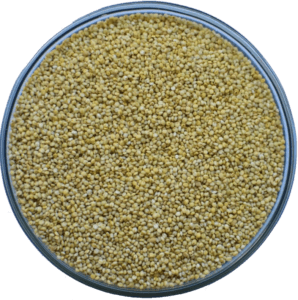
Browntop millet is a traditional crop that requires soaking before cooking. This millet offers a wide range of benefits, including the treatment of ovarian problems, stomach issues, arthritis, high blood pressure, thyroid ailments, eye problems, and obesity. It has also been recognized for its potential in managing fissures, ulcers, piles, fistula, and various cancers such as brain, blood, breast, bone, stomach, intestine, and skin cancers.
you can read more importance of millets in my blog:https://yourhealthyoursecret.com/importance-of-millets/
Conclusion:
The various types of millets, including Foxtail, Kodo, Little, Barnyard, and Browntop, present an array of health benefits. From addressing reproductive health issues to promoting vitality, these millets are essential additions to a balanced diet. Their impressive nutritional profiles and therapeutic properties make them valuable choices for maintaining optimal health. Incorporating different types of millets into meals can offer a diverse, tasty, and highly nutritious eating experience. So, why not embrace these amazing grains and enjoy the numerous advantages they bring to the table?
NOTE : All infomation has taken from website of Dr Khadar lifestyle (the siri jeevan)
